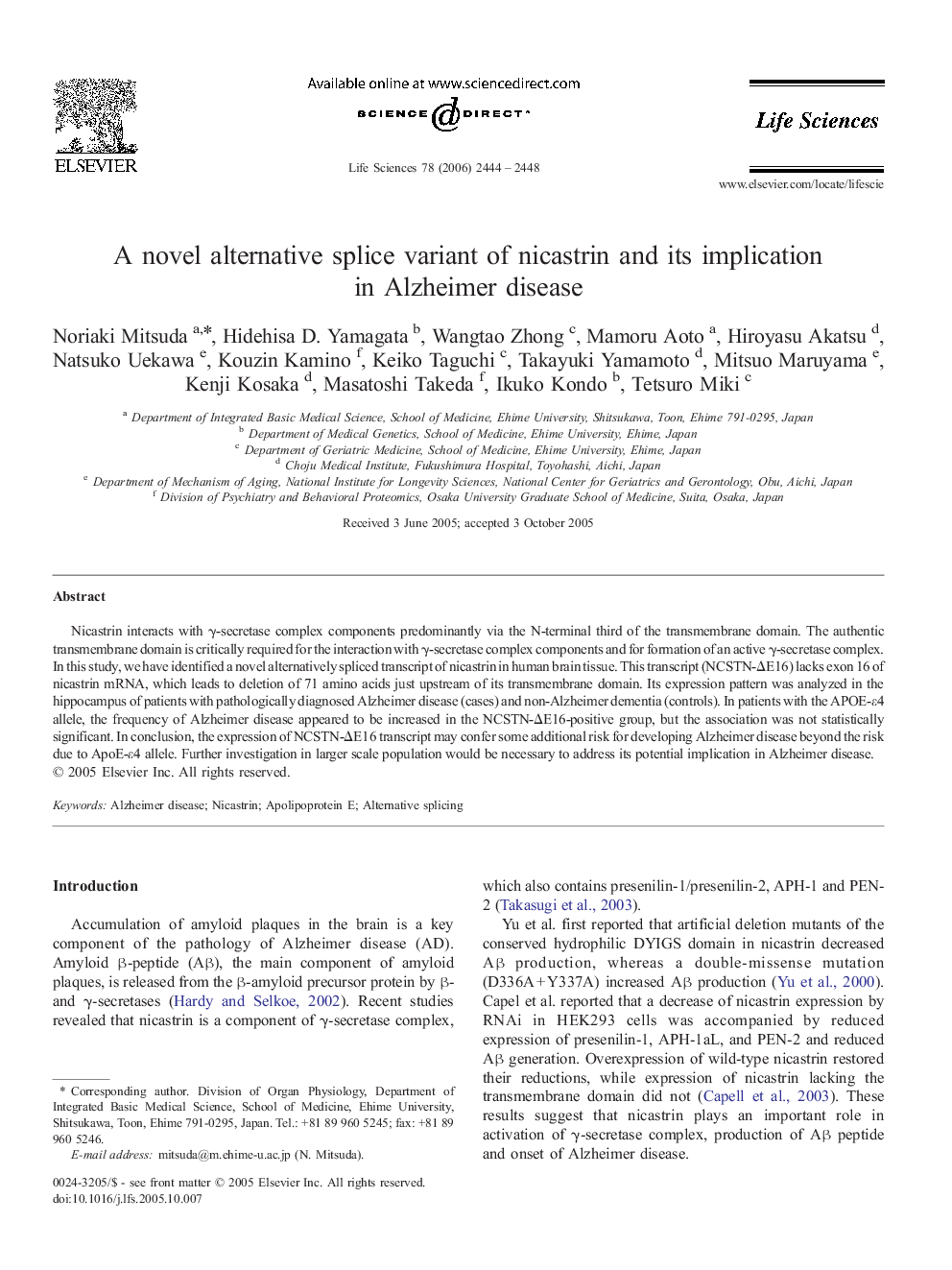| Article ID | Journal | Published Year | Pages | File Type |
|---|---|---|---|---|
| 2554682 | Life Sciences | 2006 | 5 Pages |
Nicastrin interacts with γ-secretase complex components predominantly via the N-terminal third of the transmembrane domain. The authentic transmembrane domain is critically required for the interaction with γ-secretase complex components and for formation of an active γ-secretase complex. In this study, we have identified a novel alternatively spliced transcript of nicastrin in human brain tissue. This transcript (NCSTN-ΔE16) lacks exon 16 of nicastrin mRNA, which leads to deletion of 71 amino acids just upstream of its transmembrane domain. Its expression pattern was analyzed in the hippocampus of patients with pathologically diagnosed Alzheimer disease (cases) and non-Alzheimer dementia (controls). In patients with the APOE-ɛ4 allele, the frequency of Alzheimer disease appeared to be increased in the NCSTN-ΔE16-positive group, but the association was not statistically significant. In conclusion, the expression of NCSTN-ΔE16 transcript may confer some additional risk for developing Alzheimer disease beyond the risk due to ApoE-ɛ4 allele. Further investigation in larger scale population would be necessary to address its potential implication in Alzheimer disease.
